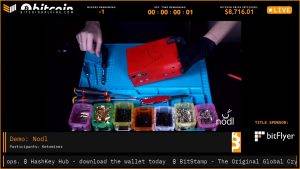While centralization in a media outlet has its merits, both consumers and producers of information and news stories are realizing the benefits of decentralized media. Centralization ensures that rules are upheld, the system runs smoothly, and the audience can enjoy stories that are truly newsworthy. However, at the same time, having one entity in charge of what news stories get told and what news stories are buried can reduce freedom of speech.
For these reasons, it’s no surprise that decentralized media outlets are getting popular all over the world.
What are the benefits of decentralization?
First of all, no one needs to know or trust anyone else in a decentralized blockchain network. In a distributed ledger, each member of the network owns a copy of the exact same data. If a member’s ledger is tampered with or corrupted in any manner, the majority of the network’s members will reject it.
Moreover, there is improved data reconciliation. Companies frequently share information with their partners. This data is then modified and stored in each party’s data silos, only to be resurfaced when it’s time to transfer it downstream. Each time data is transformed, the possibility of data loss or inaccurate data entering the workstream increases. Every entity gets access to a real-time, shared view of the data thanks to a decentralized data storage.
Decentralization also reduces points of weakness, so it can help to mitigate sources of weakness in systems when single actors are overly reliant. Systemic failures could result from these flaws, such as inability to provide promised services or inefficient services due to resource exhaustion, recurrent outages, bottlenecks, a lack of appropriate incentives for effective service, or corruption. Last but not least, decentralization can also aid in resource distribution optimization. This ensures that promised services are delivered with improved performance and consistency, as well as a lower risk of catastrophic failure.
How does decentralization benefit media outlets?
Media outlets are designed to support freedom of speech, but the existence of centralization in a media outlet curtails these very freedoms. In a decentralized media outlet, the sources of news stories are rewarded based on the audience’s collective perception of their news stories. This is different from what happens in a traditional media outlet, where the powers that be determine what stories are newsworthy enough to be published. By creating a system where the collective perception of news stories determines their worth, decentralized media outlets offer a platform for stories that truly matter to the public. The publication of such news stories ensures that significant information and important news stories are preserved for the future use.
How Save History’s decentralized media outlet is changing things
Save History has built a decentralized media outlet on a Blockchain ecosystem that records and stores valuable information in the form of NFT assets. With Save History, journalists, bloggers, authors and other thought leaders can create a new history vector called an exceptional truth. Public figures and major media outlets can ensure their valuable knowledge lives on beyond them. The Save History ecosystem is both an honest journalist and a history keeper, an electronic notary and a unique letter carrier, an NFT publisher and a social network.
The Save History ecosystem runs on a utility token – Save History Token (SHT). SHT is used to run the Blockchain technology, store information, pay for decentralized media and news subscriptions, and issue NFT books. The native token also grants users access to the bottled-mail or notary services at Save History. As Save History’s audience grows along with the services they offer, the SHT token will also increase in value.
SHT has made all the following possible:
- Storing significant news and investigations in the history
- Creating NFT manuscripts and books
- Storage of any necessary information
- Keep an eye on politicians and public figures
- Promoting Libraries and Reading rooms
- Unlimited scalability and protection
- Separation of news and advertisements
- Functionality, security, and constant availability
- Bottle Mail
- Free use of the ecosystem for holders of Save History Token
The ecosystem is designed to connect any Media Outlets that are not afraid to write their publications into the story.
What inspired the creation of Save History?
When asked what inspired him to build this decentralized media outlet, Save History CEO Andrei Garusov says, “Billions of content pieces are created around the world every day. Nevertheless, it is incredibly difficult to determine where the source is, what information reflects the reality of what is happening, who creates news and who creates propaganda. With Save History Token, we can identify all these details, and save significant information for future generations.”
The team at Save History is determined to create a better future for our generation’s children and grandchildren by preserving information that could help these future generations to progress. At the moment, the platform already has archives of information from Elon Musk and The New York Times among others.
Why use Save History?
Save History is the world’s first Blockchain created to store the past and use data in the future. The driver of token price growth is the increase in audience and services in the ecosystem. Since there are billions of pieces of content created around the world constantly, it is becoming increasingly difficult to know where the source is, what information reflects the reality of what is actually going on, who creates news and who creates propaganda. The SHT token is the first project that keeps that in mind and created for future generations that helps to distinguish between different sources of information and saves significant data for use in the future. The project creates a new history vector called an exceptional truth.
Additionally, the Save History project has successfully passed the KYC verification process as well as their smart contract audit.
The unveiling of Save History’s ecosystem will benefit both current and future generations by identifying news sources and preserving significant data for the future. Additionally, the Save History team is determined to reward journalists, bloggers and other thought leaders fairly for their contributions to the ecosystem.
For more information on the Save History ecosystem, click here.









